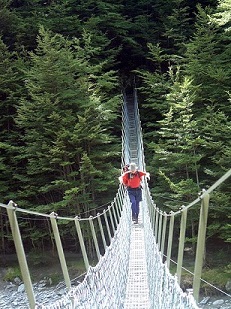
Courtesy of wikipedia.com
If my memoir ever finds an agent and is published, readers who buy the book will journey back to the 1960s, joining my travel adventures throughout Europe and Africa. I spent nearly 4 years wandering the planet and found the experience freeing. Existing as a stranger in a strange land left me unaffected by local politics, except in Zimbabwe where my ignorance almost got me killed. Even so, I’d take the risk again if it didn’t require so much traveling and packing and unpacking. If Scotty’s teletransport machine from Star Trek was in good repair, I wouldn’t hesitate to trundle off to the French wine country for a few days, or gorge on pizza while sitting at the edge of the Trevi fountain in Rome.
Travel gets in the blood. But by the 1980s, in my middle years, my trips were confined to the Oregon beaches or to the mountains. Not a bad tradeoff, I admit. Still, when a group of county employees I’d worked with while a commissioner packed their retirement bags and headed for Portugal, I understood. Warm sun, beautiful landscapes, quaint villages. I track them now with envy on Facebook.
Their exodus came before the pandemic, but I don’t suppose this gaggle of retirees will come flocking home soon. One of them just finished extending his garden in that sunny clime, marking his border with rocks he hand-carried for the purpose. He’s probably resting at this moment in his hammock, a glass of Portuguese wine in one hand while he stares into a bucolic horizon.
Even so, a number of expats are flocking back to their native lands. They’re fleeing political instability in places like Hong Kong or the Gulf nations. Or, they’re escaping the pandemic in places where medical systems are inadequate. In the United States, expats are returning in great numbers and driving up housing prices as a result. (“Covid-19 Chills the Allure of Expat Life,” by Katrina Nicholas, et al., Bloomberg Businessweek, June 8, 2020, pgs. 14-15.)
Not all of these individuals come home voluntarily, however. Some Asian countries, depressed by Covid-19, are choosing to hire and train nationals rather than import costly foreign expertise. (Ibid, pg. 15.) Out of work and far from family during this pandemic, most of the unemployed buy a ticket home. Those who give in to their wanderlust find they have fewer places to travel and even fewer airlines to carry them. Forget about weekend junkets to Bali.
Like those returning from abroad, I’ve decided home is a good place to be during a pandemic, despite the antics of our President. I’ve even given up my car. My adventurous junkets are walks to the grocery store. I still travel, though. At the moment, Rick Steves is my tour guide.
